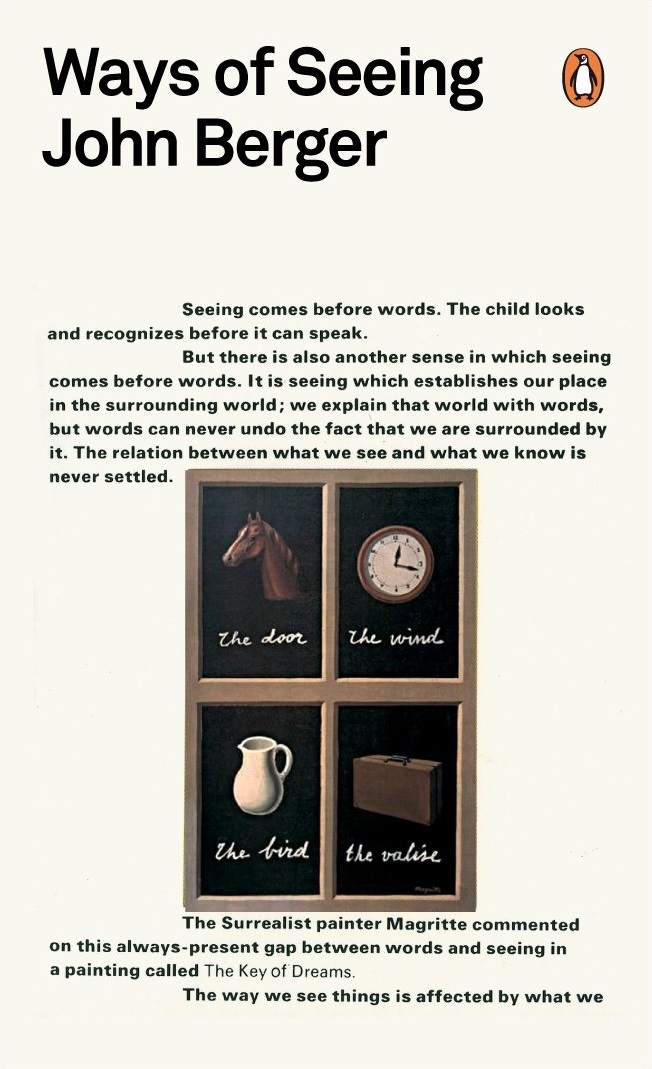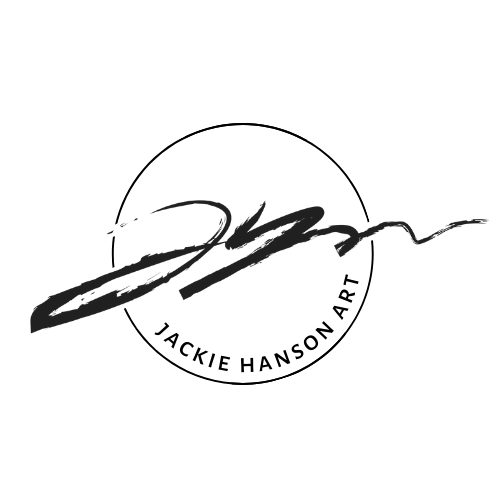I'm an artist first. I was born an artist, I grew more entwined with the identity in art school, I will die an artist.
But right now, I'm also a librarian (lowercase L- I don't have a library science degree.) I work full-time at the academic library of the college I attended and I honestly really like it.
I've found these roles feed one another quite nicely, and one of the ways they do is that I have a mental list of must-reads for any artist, based heavily on the books in our collection that I've learned are in something of an art-philosophy canon. Some of them I've read, either as required by undergrad courses or by my own choosing, but many I have not. That's why I'm compiling this list of must-reads- for myself and for you.
I'll also include a couple of my own favorites that aren't necessarily in the artists' most essential library, but I'll make note of that. And again- keep in mind this is also to serve as my own to-be-read (TBR) list, so don't judge how many I haven't read yet!
Let's dive into the list:
Braiding Sweetgrass: Indigenous Wisdom, Scientific Knowledge, and the Teachings of Plants
by Robin Wall Kimmerer
Okay, the very first thing on my list is not even really about art, per se. It's one of the exceptions-to-the-rule I just mentioned. But it's my favorite book and has influenced my art and life philosophy so much. It's written by a botanist from the Potawatomi Nation who beautifully marries indigenous knowledge and ethics into scientific study. Poetry and fact are one in this book (though it's not actually written as poetry- it's just so beautiful.) Everyone needs to read this.
The Artist's Way: A Spiritual Path to Higher Creativity
by Julia Cameron
Here's one on my TBR. The Artist's Way, from what I've heard, is not so much of a book as it is a guide on a journey. People don't ask if you've read it, they ask if you've done it. Many describe the person they were before doing it differently than the person they become after. That's very high praise and I'm skeptical a book can live up to these claims, if I'm honest, but it's something I have to do to know. This is also where Morning Pages comes from, which I'm not ready to commit to writing... hence my procrastination in doing this book.
Ways of Seeing
by John Berger
This is a critical text that influenced how art is interpreted today. I'm sure its teachings were woven into my art education, especially in my art history courses. It's another that I really need to read and haven't yet.
Interaction of Color
by Josef Albers
I borrowed this from my library for weeks, renewing it until I saw a request from someone else come in. While I explored the color plates quite a bit, I didn't spend as much time with the written word. I noticed that a lot of the color theory interactions were mimicked in my 2D Design course, using Color-Aid paper, during the single semester of freshman year I attended my first college. I've come to understand quite a bit of color theory and can wield it as a tool now, rather than wrestle it as a foe. Still, there will always be more to learn and this book is on my list for a more thorough exploration.
The War of Art: Break Through the Blocks and Win your Inner Creative Battles
by Steven Pressfield
Though this was written with writers in mind, it's been adopted by creatives of every discipline. And again, it's on my TBR. This book actually inspired this blog post, as it circulated recently at the library and reminded me that this list has been wandering my brain for so long.
Big Magic: Creative Living Beyond Fear
by Elizabeth Gilbert
Okay, I know this is my own list, but Big Magic was not my favorite. Sorry. I'm glad I've actually read it, and if I remember correctly, I knocked it out in a night. Countless creatives I admire, especially women, have described this book as life-changing. and yet, I found a lot of the ideas she proposed didn't speak to me. I have yet to hear from someone else who didn't get into it, though, so I still recommend giving it a read because it's been so impactful for the majority of creative people.
Important note: this is from the same author who wrote Eat Pray Love, which had an enormous cultural impact soon after publication. If you've read that and enjoyed it, give this a shot- EPL doesn't appeal to me either, so maybe Gilbert's just not the author for me.
Steal Like An Artist: 10 Things Nobody Told You About Being Creative
by Austin Kleon
This is probably the easiest book on the list to read. You can get from cover to cover in less than an hour, as a generous estimate.
Steal Like An Artist contains some ideas about originality (like that it doesn't truly exist) which should help find new ways to generate ideas. I enjoyed it, when I read it at 20 years old, but I haven't been called to pick it up again since. In fact, I listened to a more critical review of this book on S
ari Shryack's podcast, which brought to light for me a new perspective about why it is the way it is, and I might consume it with more skepticism now. Yet, I do own a copy.
Creative Block: Get Unstuck, Discover New Ideas, Advice, and Projects from 50 Successful Artists
by Danielle Krysa, AKA The Jealous Curator
Calling this one a classic might be a stretch, but hey, this is my list and I'm going to include this because I love it. Creative Block is a collection of interviews with living (as of 2014... so over ten years ago) artists designed to show you how even they get stuck- and how they get un-stuck. And have I mentioned how I love the Jealous Curator?
The Art Instinct: Beauty, Pleasure, and Human Evolution
by Denis Dutton
Chef's kiss. Beautiful. Love it.
Okay, I'm exaggerating the percentage of this book I've actually completed. But its central philosophy spoke straight to my soul and changed what I believe is core to the human experience.
The Art Instinct argues that creativity is an innate part of our very being. Art forms like painting, drawing, music, and dance have manifested throughout human history and in all cultures. So, Dutton argues, creativity must be an innate part of our being, something that came about through evolution and is thus necessary for our survival. And so, whether you have the skill to pursue a creative path professionally or if all you need from it is to get in touch with your basic humanity, it is important and worth doing. It's the process of expression that matters, not the resulting product.
So if you don't have time to read the book, or any of these books, please take this message to heart: your creativity is necessary, healthy for you, and so important.
Trust the Process: An Artist's Guide to Letting Go
by Shaun McNiff
There are, like, a dozen books with Trust the Process in the title, so I don't know where this buzz-phrase came from, but I choose to believe it was this book. Leaning into process over product has been a leading shift in the art world for... decades? And speaks so well to the point I made in the above book's paragraph. If you can turn off your value judgment and let the process take you to the end, that's where the important stuff is.
Make Your Art No Matter What: Moving Beyond Creative Hurdles
by Beth Pickens
I love when the title is a mantra you can carry along after you close the book. This book confronts the common struggles most artists face, like a lack of time or having fear or a day job. These things make it harder, but they are not roadblocks, and this book shows how you can feel these things and still move past them, or alongside them. I read this book, one chapter a night, and found it not only resonant reading in a linear fashion like that, but knew it would become reference material, and bought myself a used copy to keep.
Art as Experience
by John Dewey
Another TBR for me, Art as Experience is an adaptation of a lecture on aesthetics given by the author at Harvard in 1934. It's one of the defining books of the cultural shift of art, from a being means of record-keeping, to the post-photographic era of art as an expressive, process-based act. As I write this list, it's clear to me some of this essential reading will be pivotal in the advancement of my artwork- something I've been craving for quite a while.
Art and Fear: Observations on the Perils (and Rewards) of Artmaking
by David Bayles and Ted Orland
A classic: artists speak to artists about what it is to be an artist. One of my figure drawing instructors used to bring this book to class and select paragraphs to read aloud as we sketched from live models. Perhaps this is the best conclusion to this list, as in the process of compiling, it looks like this is what I'll want to read next. My struggles as an artist are not unique, and feeling seen in those struggles is so crucial to navigating them.
I hope this list inspires you to pick up one of these books and read. Better yet, check if your local library has any of them, or if they have ebooks or audiobooks you can use to access them. They may even have an inter-library loan program to get them for you- if you're in New Hampshire, like I am, ask about NHAIS. Using your library tells your town that the tax dollars allocated there are worth it, because people (you) are using their services. So use them!



![Interaction of Color: 50th Anniversary Edition [Book]](https://m.media-amazon.com/images/I/61jZPFRe6tL.jpg)





![Trust the Process: An Artist's Guide to Letting Go [Book]](https://m.media-amazon.com/images/I/61G-vQPYt3L.jpg)
![Make Your Art No Matter What: Moving Beyond Creative Hurdles [Book]](https://m.media-amazon.com/images/I/716JSt3xQXL.jpg)




